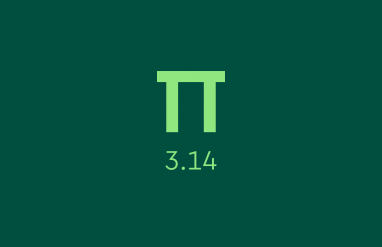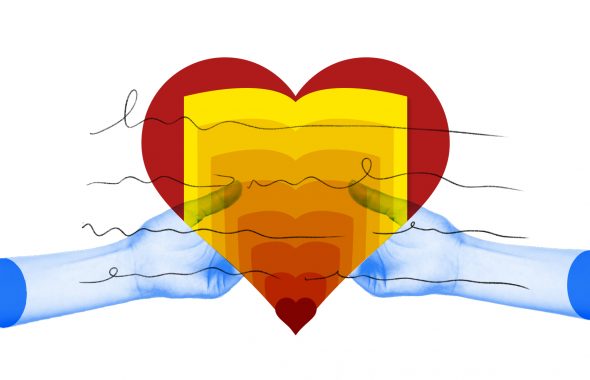COVID-19 has provided a consistent vocabulary lesson in epidemiology. Among the most important distinctions it has highlighted are the differences between the terms epidemic, pandemic, and endemic.
These words have major similarities—all three end in -demic and deal with the spread of disease. But there are key differences, including those related to scale and duration.
In this article, we’ll sort out the differences and answer these questions and others:
- How is a pandemic different from an epidemic?
- What does endemic mean?
- Is COVID-19 endemic?
For more COVID-related vocabulary, see our COVID-19 glossary.
⚡Quick summary
An epidemic involves the wide-ranging spread of a disease throughout an entire area or particular community where it’s not permanently prevalent. A pandemic involves an even wider spread, often reaching across the entire world. The word endemic is used to describe a disease that persistently and regularly spreads within a particular area or region (that is, it never fully goes away)—for example, the flu is considered endemic in many places. The COVID-19 virus is not yet considered endemic, but medical experts expect that it eventually will become endemic.
What is an epidemic?
An epidemic disease is one “affecting many persons at the same time, and spreading from person to person in a locality where the disease is not permanently prevalent.” The World Health Organization (WHO) further specifies epidemic as occurring at the level of a region or community.
Epidemic is commonly used all on its own as a noun, meaning “a temporary prevalence of a disease.” For example: The city was able to stop the flu epidemic before it spread across the state.
Metaphorically, epidemic is “a rapid spread or increase in the occurrence of something,” usually with a negative or humorous connotation: An epidemic of gentrification was affecting low-income communities or The hipster look gave way to an epidemic of 1990s fashion.
The -demic part of epidemic (and pandemic) comes from the Greek dêmos, “people of a district.” This root also ultimately gives English the word democracy. More on the prefix epi– later.
What is a pandemic?
Compared to an epidemic disease, a pandemic disease is an epidemic that has spread over a large area, that is, it’s “prevalent throughout an entire country, continent, or the whole world.”
Pandemic is also used as a noun, meaning “a pandemic disease.” The WHO more specifically defines a pandemic as “a worldwide spread of a new disease.” In March 2020, the WHO officially declared the COVID-19 outbreak a pandemic due to the global spread and severity of the disease.
While pandemic can be used for a disease that has spread across an entire country or other large landmass, the word is generally reserved for diseases that have spread across continents or the entire world. For instance: After documenting cases in all continents except Antarctica, scientists declared the disease a pandemic.
As an adjective, pandemic can also mean “general” and “universal,” also often with a negative connotation. However, pandemic appears to be most commonly used in the context of epidemiology, which is concerned with infectious diseases.
Pandemic also entered English, through Latin, in the 1600s. Like epidemic, pandemic ultimately derives from the Greek pándēmos, “common, public.” Also like epidemic, pandemic was originally used of diseases when in came into English.
What does endemic mean?
Endemic is an adjective that means natural to, native to, confined to, or widespread within a place or population of people.
Endemic is perhaps most commonly used to describe a disease that is prevalent in or restricted to a particular location, region, or population. For example, malaria is said to be endemic to tropical regions. In this context, it can also be used as a noun: an endemic disease can simply be called an endemic.
When used to describe species of plants or animals that are found only within a specific place, it has the same meaning as native or indigenous, as in This plant is endemic to this region.
It can also be applied to characteristics of a people, place, or situation, as in Corruption was endemic in that organization when I worked there.
The first records of endemic in English come from the mid-1600s. It comes from the Greek éndēm(os). The prefix en- means “in or within” and the Greek root dēm(os) means “people.” So the basic meaning of endemic is “within a certain people” (or “within a certain area”).
Is COVID-19 endemic?
The short answer is “not yet.” Currently, COVID-19 is not endemic and is still classified as a worldwide pandemic. The COVID-19 virus is still mutating into variant strains and widespread immunity to COVID-19 will likely take a long time to achieve.
However, most experts predict that COVID-19 will become an endemic disease after its pandemic phase, once enough people have developed immunity to COVID-19 (through vaccination or infection). In other words, COVID-19 is expected to become a recurring disease like the flu. When this will happen is hard to predict—and it will most likely vary from place to place. For more info on need-to-know coronavirus words, see our explainer on the flu vs. COVID-19.
Epidemic vs. pandemic
As we mentioned, it’s unsurprisingly easy to confuse these two words. For one, they both feature -demic, which can make it difficult to suss out which word should be used in which situation.
But, here’s a handy rule of thumb for using the prefixes of these two words: epi- and pan-. The prefix epi- is Greek and variously means “on, upon, near, at,” while pan-, also a Greek prefix, means “all.”
Knowing this, think of an epidemic as the start of something—whether a disease or a trend—spreading rapidly within a community or region, whereas a pandemic is what an epidemic becomes once it reaches a far wider swath of people, especially across continents or the entire world.
If something is spreading like wildfire, it’s an epidemic. If something has already spread like wildfire and is currently massive in its reach and impact, it’s a pandemic.
For good measure, here’s an example of each in a sentence:
- The city had to close schools to contain a measles epidemic.
- Although it isn’t exactly known where the disease first originated, the 1918 Spanish flu pandemic is estimated to have affected one-third of people across the entire globe.
Pandemic vs. endemic
Classifying a disease as endemic indicates a level of permanence, whereas a pandemic has a defined end (even if it seems like the COVID-19 pandemic will last forever). Due to its worldwide reach, a pandemic can lead to a disease becoming endemic (as opposed to being largely contained or eradicated through the use of vaccines, for example).
Here are examples of each word used in a sentence.
- Medical experts feared that the new virus would spread beyond the country’s borders and cause a worldwide pandemic.
- Polio is endemic in a few countries where its spread has not been contained.
What is the difference between an epidemic, pandemic, and an outbreak?
An outbreak is a “sudden breaking out or occurrence” or “eruption.” When referring to an infectious disease, an outbreak is specifically a sudden rise in cases, especially when it is only or so far affecting a relatively localized area.
That makes a disease outbreak roughly synonymous with an epidemic. In everyday speech and writing, people may more generally refer to the major spread of an infectious disease as an outbreak.
In official, medical, and scientific communication, however, it’s important not to confuse a local epidemic (such as a disease affecting just a city) with a pandemic, because pandemic implies the outbreak spread all over the world.
What is an epicenter?
An epicenter is a “focal point, as of activity.” If a country or region is called the epicenter of a pandemic disease, that means more or an accelerating number of cases are being confirmed there than anywhere else in the world. Sometimes an epicenter is called a hotspot.
A particular site, such as a nursing home, where there is a sudden spate of new cases is also sometimes called a hotspot or even hot zone.














